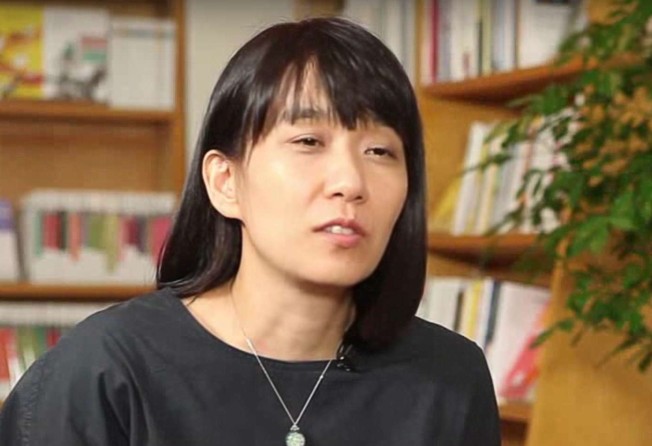
From award-winning Asian fiction to great American novels: our pick of the best books from 2016
It’s been quite a year in the world of letters, not least for Asian writers – a Korean won the International Man Booker and Chinese, Japanese and Indonesian fiction continued to expand their reach

It’s been a lousy year. Brexit, Syria, the epidemic of genuinely great people dying: from Bowie and Prince to Ali and Cohen. And I haven’t even mentioned Bad Santa 2. Or Donald Trump.
The year in books was considerably more encouraging, not least for the insights they offer into the deluge of disasters. Anyone seeking enlightenment about the human cost of Syria’s civil war, for example, should read The Battle for Home by Marwa al-Sabouni. An architect who lives in Homs, she employs memoir, architectural analysis and wonderfully evocative drawings to tell her story and that of her home city. It is astonishing.

Han Kang’s The Vegetarian was a worthy winner of 2016’s International Man Booker. By turns surreal, erotic and shocking, this utter one-off is propelled by the otherwise ordinary decision of a young Korean woman to give up meat. What happens next is a verbal firestorm that engulfs big themes such as gender, art, sex and politics.
Other notable International Man Booker nominees included Yan Lianke’s high-minded epic, The Four Books, and Man Tiger, by Eka Kurniawan, who won the FT/Oppenheimer Funds Emerging Voices Award for Fiction with his startling account of the Indonesian dictatorship.

Chinese science fiction continues to spread across the globe, thanks largely to Liu Cixin and Ken Liu. Death’s End, the final part of Liu Cixin’s masterly modern classic The Three-Body Problem, completed a trilogy that succeeds both as an exercise in imaginative universe-building and an allegory of modern China.

His translator, Ken Liu, found time to publish a novel of his own, The Wall of Storms, and a story collection (The Paper Menagerie), as well as editing Invisible Planets, an anthology of Chinese science-fiction shorts that suggests Ken Liu’s talent is but the tip of an iceberg. Highlights include Chen Qiufan’s horror dystopias and Hao Jingfang’s Hugo award-winner, Folding Beijing.
Two non-fiction books chewed over the consequences of China’s one-child policy. Mei Fong’s One Child offers a wide-ranging, often deeply personal account that examines 2008’s Sichuan earthquake and considers the impact the law might have upon gender relations, the generation gap and Chinese society as a whole. Alec Ash’s Wish Lanterns may sound narrower in scope: six vivid portraits of millennials coping with the pressure to succeed in their personal and professional lives. But the conclusions Ash draws about China’s past and future are substantial indeed.

An equally sobering but more heart-warming story of contemporary America is provided by Richard Russo’s mordantly funny Everybody’s Fool. The sequel to his 1993 masterpiece Nobody’s Fool, it follows the erratic adventures of Donald “Sully” Sullivan in small-town America. Another contender for 2016’s great American novel is Elizabeth Strout’s My Name Is Lucy Barton. This is essentially a two-hander set in a single hospital room, but Strout’s nuanced prose enables her mother-daughter tale to break free from its narrative confines.
Then again, we learned this year that America’s most important living writer isn’t, strictly speaking, a writer at all. Bob Dylan won 2016’s Nobel Prize for Literature, an event that pitted pop lyrics against poetry for weeks on end. Personally speaking, I would like to know when J.K. Rowling is going to release that Harry Potter hip hop record.

For “Elena Ferrante”, acclaimed and pseudonymous Italian author of My Brilliant Friend, 2016 was the year she was outed, by The New York Review of Books no less, as Anita Raja, a Roman translator (allegedly). Tweets flew, as the literary world discussed the morality of destroying Ferrante’s oft-discussed anonymity. Luckily, the rest of us could simply do what Ferrante has always wanted: read Frantumaglia: A Writer’s Journey and The Story of the Lost Child (the latter was also shortlisted for the International Man Booker).

All these were overshadowed by Paul Beatty’s gratifying, if surprising, Man Booker victory with The Sellout. Wildly, even confrontationally satirical, The Sellout’s plot about a modern-day black slave owner feels both timely and timeless.


It may have been a truly awful year, but it’s not too late to grab a book and make it a little better.